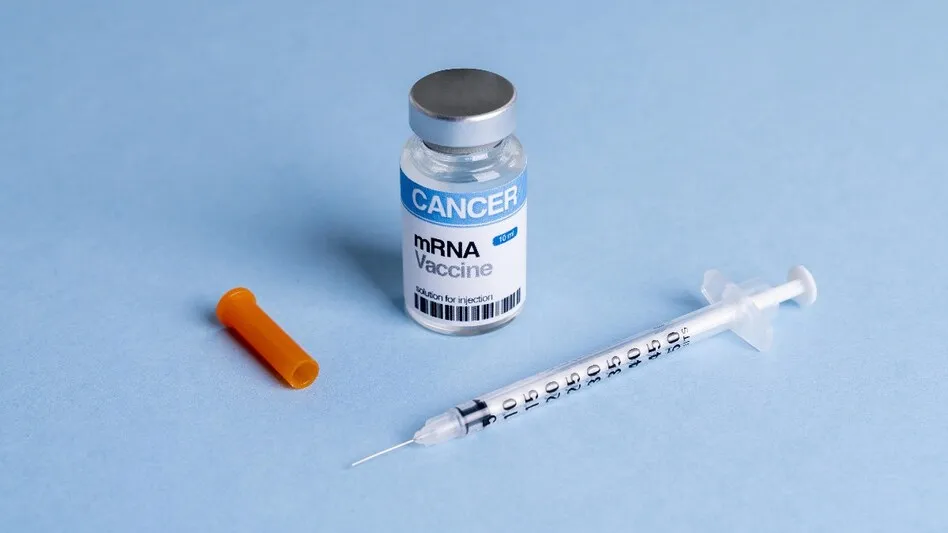
Personalized Cancer Vaccine Market & Clinical Trials Outlook 2025 – 18+ Vaccines in Development
The “Personalized Cancer Vaccine Market Opportunity & Clinical Trials Outlook 2025″ report, now available from ResearchAndMarkets.com, highlights the growing significance of personalized cancer vaccines in the rapidly evolving landscape of oncology. These vaccines represent a paradigm shift in cancer treatment, leveraging advancements in biotechnology and genomics to develop individualized therapeutic strategies. With increasing demand for targeted therapies and breakthroughs in mRNA technology, the personalized cancer vaccine market is poised for substantial growth by 2030.
The Growing Potential of Personalized Cancer Vaccines
Personalized cancer vaccines offer a novel approach to treatment by utilizing a patient’s genetic profile to create bespoke vaccines designed to identify and eradicate cancer cells with precision. This approach is gaining traction due to its enhanced specificity and efficacy compared to conventional therapies. Companies such as BioNTech, Moderna, and myNEO Therapeutics are at the forefront of innovation, building on their expertise in mRNA vaccine technology originally developed for COVID-19 vaccines.
Key Findings from the Report:
- Commercially Approved Personalized Cancer Vaccine: Provenge
- Patent, Pricing, and Dosage Insights
- Global Clinical Research Trends by Region and Indication
- Insight into Over 18 Personalized Cancer Vaccines in Clinical Trials
- Detailed Clinical Insights by Developer, Indication, and Phase
- Proprietary Development Platforms in Personalized Cancer Vaccines
- Competitive Landscape Analysis
The Role of Precision Medicine in Oncology
The rise of personalized cancer vaccines is fueled by the broader movement towards precision medicine, which aims to tailor treatment regimens based on individual patient characteristics. This approach has already demonstrated promise in multiple cancer types. A notable example is BioNTech’s collaboration with Genentech to develop autogene cevumeran, a personalized mRNA vaccine currently undergoing clinical trials for pancreatic ductal adenocarcinoma, melanoma, and colorectal cancer. This collaboration highlights the potential of combining cutting-edge mRNA technology with personalized immunotherapy to tackle difficult-to-treat cancers.
Investment and Market Growth
Investment in personalized cancer vaccines is on the rise, with pharmaceutical companies and venture capital firms injecting substantial funds into research and development. The strategic partnership between Moderna and Merck has already yielded promising results, reinforcing optimism about the commercial viability of personalized cancer vaccines. However, the industry faces significant hurdles, particularly in manufacturing. The bespoke nature of these vaccines results in high production costs, often exceeding $100,000 per patient, which could hinder widespread adoption.
Innovations in Vaccine Manufacturing
Despite the challenges associated with high production costs, advancements in automation and artificial intelligence are expected to drive efficiencies in vaccine development. AI-driven neoantigen selection and robotic vaccine synthesis have the potential to streamline the production process, reducing costs and making personalized more accessible to a broader patient population. As economies of scale come into effect, the financial burden associated with personalized vaccines is likely to decrease, enhancing their commercial viability.
The Future of Personalized Cancer Vaccines

Personalized cancer vaccines are anticipated to play a pivotal role in the future of oncology treatment. The increasing availability of companion diagnostics will aid in refining patient selection, ensuring that only those most likely to benefit receive treatment. This marks a significant shift away from the traditional one-size-fits-all approach to a more personalized, patient-centric model of cancer care.
Market Trends and Future Outlook
The commercial landscape for personalized cancer vaccines is evolving rapidly, with key players vying to establish their foothold in the market. While the promise of these vaccines is undeniable, overcoming challenges related to manufacturing, intellectual property rights, and reimbursement policies will be crucial for their success. As technology advances and regulatory frameworks adapt, personalized have the potential to become a standard treatment option, revolutionizing oncology care and offering new hope to cancer patients worldwide.
Key Topics Covered in the Report:
1. Personalized Cancer Vaccines as Next-Generation Immunotherapy
- Strategic Approaches in Cancer Vaccine Development
- Current Progress and Challenges
2. Mechanism of Action
- The Role of Tumor Neoantigens and Human Leukocyte Antigen (HLA)
- Personalized Cancer Vaccine Working Mechanism
- Genetic Polymorphism in Pharmacogenomics
- Cancer Pharmacogenomics and Somatic Mutations
3. Role of Biomarkers in Personalized Vaccines
- Pharmacogenomic Biomarkers
- Prognostic and Predictive Biomarkers
4. Provenge – The First Approved Personalized Cancer Vaccine
- Overview and Patent Insights
- Pricing and Dosing Information
5. Clinical Insights on Personalized Cancer Vaccines
- Analysis by Developer, Indication, and Clinical Phase
6. Market Development and Future Outlook
- Current Market Development Scenario
- Future Market Outlook
7. Clinical Trends and Developments by Cancer Indication
- Melanoma
- Lung Cancer
- Breast Cancer
- Prostate Cancer
- Gastrointestinal Cancers
- Gynecological Cancers
- Brain Tumors
- Hematological Malignancies
8. Regional Market Insights
- United States
- European Union
- China
- India
- Australia
- South Korea
- Taiwan
- United Kingdom
9. Proprietary Development Platforms
- BioNTech: iNeST
- BioVaxys: DPX & Haptenix Platforms
- CureVac: Proprietary mRNA Technology
- Evaxion: PIONEER & ObsERV Technologies
- Geneos: GT-EPICT Platform
- Moderna: mRNA Design Studio
- myNEO Therapeutics: ImmunoEngine
- Nouscom: Unnamed Technology
- Nykode Therapeutics: Vaccibody
- Transgene: myvac
10. Market Dynamics and Competitive Landscape
- BioNTech AG
- CureVac AG
- Evaxion Biotech
- Geneos Therapeutics
- Genentech
- Merck
- Moderna Therapeutics
- NeoCura
- Transgene
- TuHURA Biosciences
Personalized cancer vaccines have the potential to revolutionize oncology, offering a highly targeted, patient-specific approach to treatment. While obstacles such as manufacturing complexity and high costs remain, continued advancements in biotechnology, artificial intelligence, and automation are expected to address these challenges. As the field matures and commercialization strategies evolve, personalized could become a mainstream treatment, fundamentally altering the landscape of cancer care and providing new hope to patients worldwide.





